Editor’s note: This post is part of our weekly In the NVIDIA Studio series, which celebrates featured artists, offers creative tips and tricks, and demonstrates how NVIDIA Studio technology improves creative workflows.
This week’s talented In the NVIDIA Studio artist, Nourhan Ismail, created a literal NVIDIA studio.
Her piece, called Creator by Day, Gamer by Night, was crafted with the isometric art style and impressive graphical fidelity Ismail’s known for, rich with vibrant colors and playful details. It also captures her “work hard, play hard” mentality as a 3D artist, interior designer and game level designer.
The same art style is featured in the NVIDIA Studio Sessions YouTube miniseries led by Ismail, which provides step-by-step tutorials on how to create a low-poly bedroom, from inception to final render.
Facial Animations Made Easier
Reallusion is the maker of Reallusion iClone, real-time 3D animation software built to produce professional animations for films and video games.
To expedite character animation workflows, the company recently launched its AccuFACE plug-in, which accurately captures facial expressions from webcams and conventional video files, without the need for expensive, specialized equipment.
The NVIDIA Maxine software development platform, the foundational technology behind the revolutionary NVIDIA Broadcast app, powers this incredible capability by weighing output and analyzing facial expressions and blendshapes to predict facial mesh animations.
From there, the AccuFACE plug-in converts this data into facial mesh assets for creators to apply seamlessly. It also fine-tunes lip and tongue articulation using proprietary AccuLIPS technology.
Download the plug-in today, available to creators with NVIDIA RTX GPUs.
Turning Pain Into Beauty
Ismail’s creative journey began at age four as a form of escape from the armed conflict occurring in Syria, her homeland. During that time, Ismail’s family faced many difficulties, including the loss of their home.
In the aftermath, she looked to her father, an accomplished artist and fashion designer, as a source of inspiration.
“His encouragement propelled me to showcase the pinnacle of my abilities, reminding me that art has the power to transform pain into beauty,” she said.
That encouragement has guided and fueled Ismail’s creative journey, eventually giving rise to her signature, single-room isometric style, an homage to the power of resilience and finding beauty in adversity.
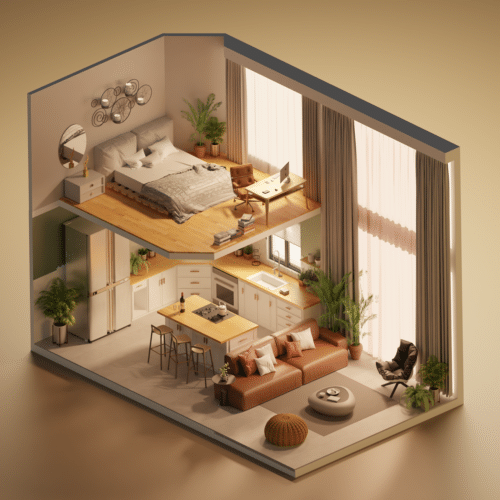
“Starting with a single room, I delve into interior design, crafting spaces that reflect the comfort and joy I yearned for during challenging times,” she said. “To me, overcoming adversity proves that even from the harshest circumstances, beauty can emerge.”
Ismail started as a self-taught 3D artist, driven by a passion to learn the intricacies of creating digital masterpieces.
“Posting my works became a personal gauge of improvement — not for validation, but as a record of my learning curve,” she said.
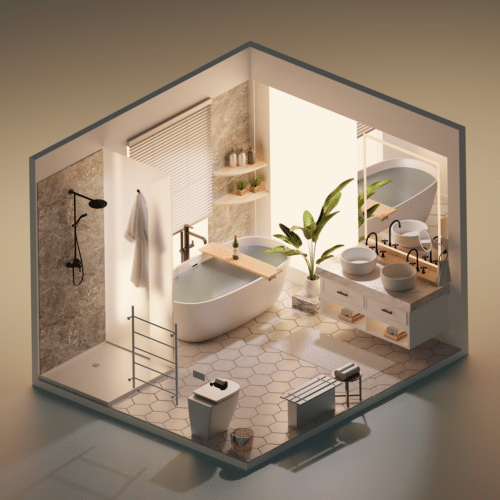
Each of Ismail’s pieces is a testament to her evolving skills, dedication and love for sharing her craft, especially with her father.
In fact, she dedicated her first isometric house to her father. “That was the happiest moment, to create something inspiring and make someone happy,” she said.
Isometric Art
Ismail first collects reference material on Adobe Behance to gain inspiration on ways to mix different art styles.
She then opens Blender and starts sketching in 3D. Blender Cycles’ RTX-accelerated OptiX ray tracing, powered by her GeForce RTX 3080 Ti GPU, ensured smooth viewport movement.
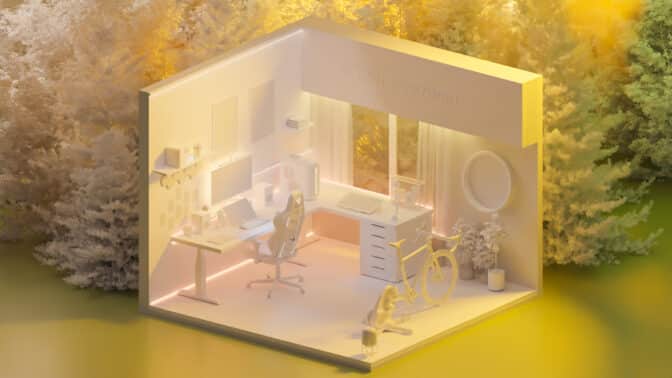
While the models are still fairly rudimentary, Ismail calculates the angles that light should be coming in from.
“Lighting is an emotional element,” she said. “The lighting of each piece evokes different emotions and a certain idiosyncratic introspectiveness, making the experience unique to each person.”
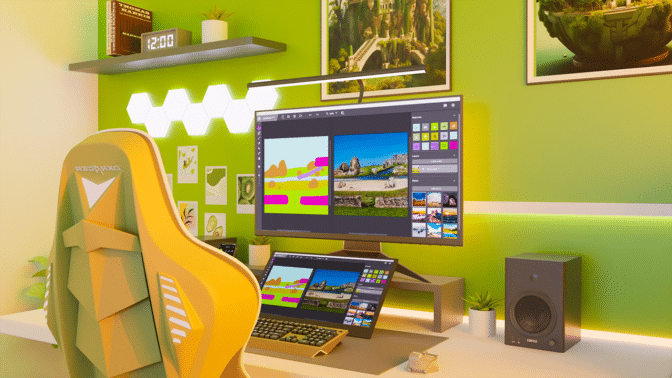
Her trick is to regularly switch between rich, colorful scenes and plain color models to measure the emotional weight and visual impact. She either creates the custom textures herself or downloads premade ones online when on a time crunch.
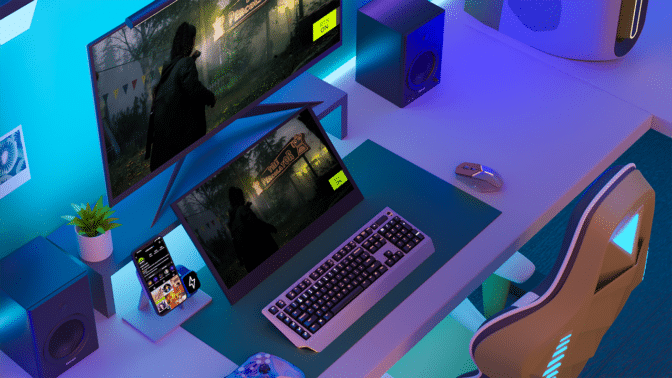
Then, she plays with camera angles to analyze depth shadows and lighting, setting up animations and sequence shots in Blender. There, Blender Cycles’ RTX-accelerated OptiX ray tracing delivered seamless viewport movement.
Final touch-ups are done in post-production in Adobe After Effects. Over 30 GPU-accelerated effects sped the process, allowed Ismail to complete the project with time to spare.
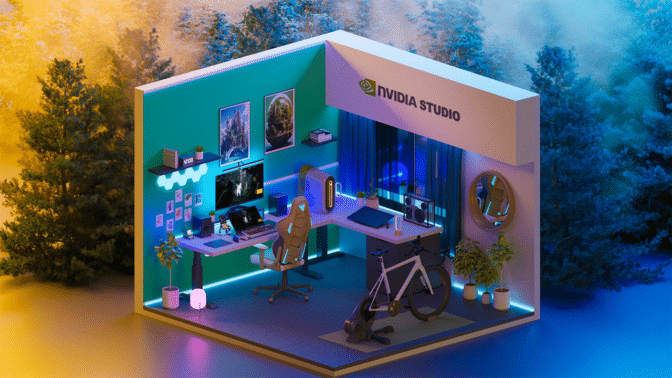
“There will always be hard times, so never give up and keep believing in yourself,” Ismail encourages content creators.
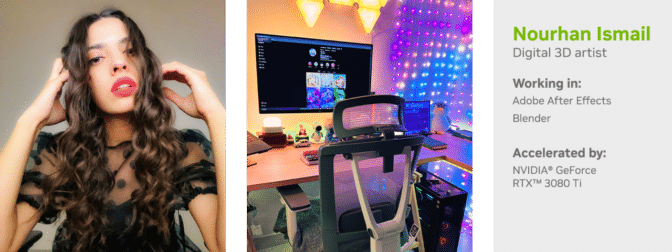
Check out Ismail’s Instagram for more spectacular isometric art.
Follow NVIDIA Studio on Instagram, Twitter and Facebook. Access tutorials on the Studio YouTube channel and get updates directly in your inbox by subscribing to the Studio newsletter.